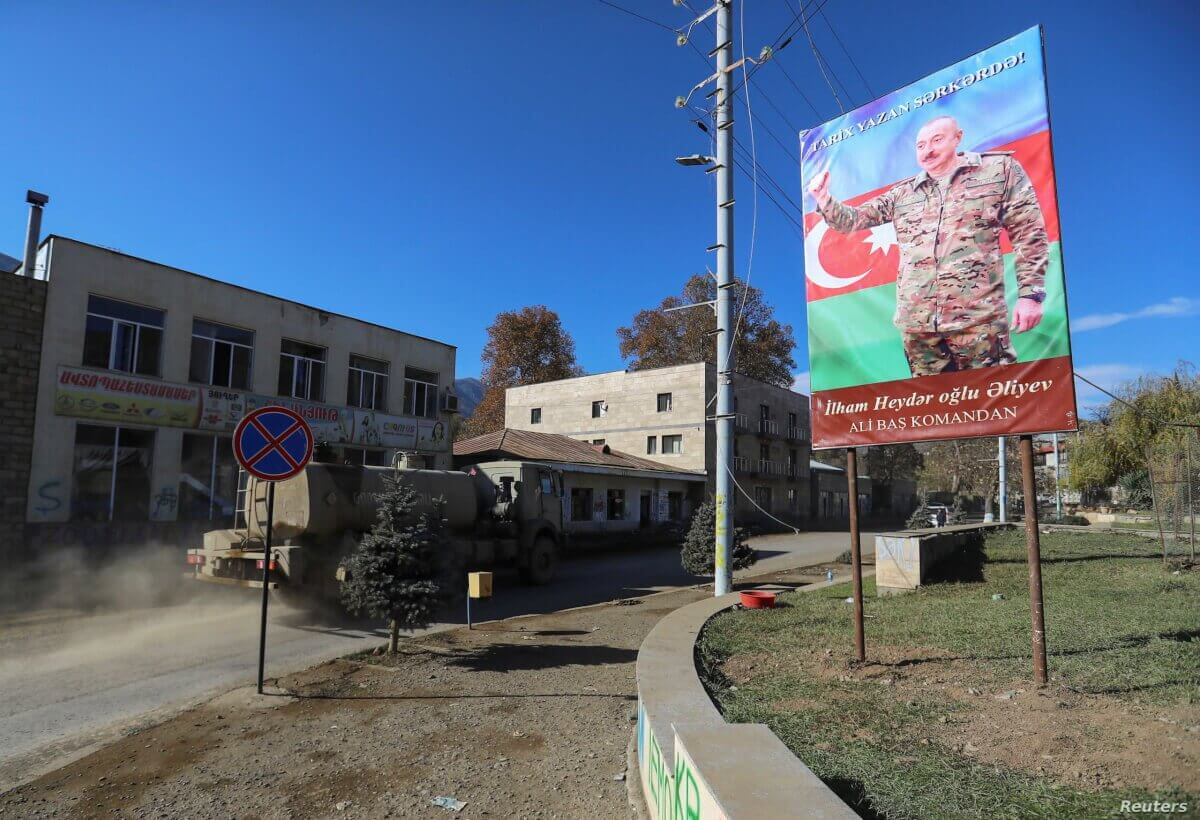On Thursday, the Azerbaijani parliament demanded that France be excluded from the Minsk group charged with mediating over the Nagorno Karabakh conflict after the French Senate voted on a text calling for “recognition” of the separatist region.
In their decision, Azerbaijani deputies recommended the government to “demand the OSCE to expel France from the joint presidency of the Minsk Group.”
The deputies asked the government to “review the political (…) and economic relations” between Baku and Paris.
In the evening, the Azerbaijani Foreign Ministry summoned the French ambassador to Baku, Zachary Gross, where he was handed a protest note against the Senate move, according to an official statement issued by the Azerbaijani ministry.
The statement said, “Azerbaijan categorically rejects the (French) Senate resolution, which opposes the United Nations charter.”
The OSCE Minsk Group, which was established in the 1990s after the first war between Armenia and Azerbaijan, is tasked with mediating in an effort to find a solution to the question of Nagorny Karabakh, the unilaterally proclaimed republic and inhabited by the majority of Armenians.
France, the United States, and Russia hold the chair of the Minsk Group.
The decision of the Azerbaijani Parliament was issued a day after the French Senate voted on a non-binding resolution, calling on the government to “recognize the Nagorno Karabakh Republic.”
The Senate also declared in its decision that it “condemns the Azerbaijani military aggression carried out with the support of the Turkish authorities and foreign mercenaries, and calls for the immediate withdrawal” of the Azerbaijani armed forces from the lands that the Armenians lost control of since September 27 in the Nagorno Karabakh region.
The region declared its independence from Azerbaijan about thirty years ago, but it did not get recognition from any country, not even Armenia, which supports it.
After a first war that lasted from 1988 to 1994, the region recently witnessed bloody battles that lasted for six weeks and left more than four thousand people dead, in which Baku achieved major field victories at the expense of Yerevan.
An agreement was reached to stop hostilities on November 9, under the auspices of the Kremlin, which enshrined the victory of Azerbaijan, whereby Armenia pledged to return several areas that had been out of Baku’s control thirty years ago, but allowed the preservation of the Karabakh region despite the reduction of its area, and provided for the deployment of two thousand Russian soldiers To keep the peace.












